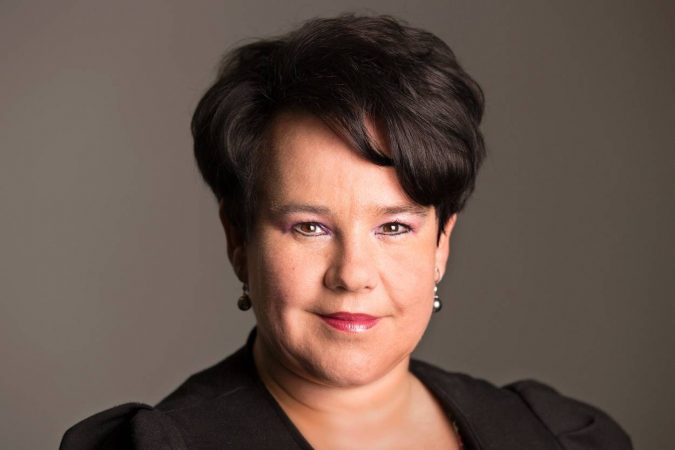25 Nov 2016

Speech | 23-11-2016
Minister voor Milieu, Sharon Dijksma, sprak 23 november in Indonesië op het seminar ‘Trash to Treasure’ onder andere over afvalmanagement en de circulaire economie. Zij tekende eveneens met haar Indonesische college minister een ‘Memorandum of Understanding’. Dijksma: ‘Structural problems call for structural solutions. And that calls for persistence, and a longstanding relationship.’
Selemat sore
Good afternoon!
It’s good to be back in Indonesia.
I was here a few years ago, as agriculture minister.
And once again, I’m deeply impressed by the enterprise and growing prosperity of the people in Indonesia.
But most of all, I enjoy the hospitality of so many people here.
Ladies and gentlemen,
The world’s population is set to grow from 7 billion today to more than 9.6 billion in 2050.
Together we’re buying and using more products, with more packaging.
The environment is feeling the strain.
The consequences are clear to see: on the streets, and in the rivers, bays and seas.
By example.
The plastic soup in our oceans now threatens our health.
And harms not only the environment but also economic sectors, like fisheries and the tourist industry.
That can change!
But we can’t do it alone.
For a clean, safe, sustainable world, we’ll have to work together.
Society, the business community, knowledge institutions and governments, each have a role to play in seeking better solutions.
And that’s what the partnership agreement that we’re about to sign is about.
Working together to tackle the problem at its roots.
By joining forces, unleashing our creativity and moving from thought to deed, we can take a leap forward.
I know there’s worldwide interest in our new initiative. And I hope it will inspire other countries to follow our lead.
With last week’s COP22 in Marrakech fresh in my mind, I’ve come to Indonesia to work with my colleague, Minister Siti Nurbaya Bakar, on further measures to prevent climate change.
Good waste management and prevention can help radically reduce methane and carbon emissions, and prevent a further temperature rise.
Proper waste separation and management pays dividends.
Smart innovations and applications can help us produce new raw materials from waste and also prevent waste.
We can extract energy from organic waste, as well as nutrients to use as fertilisers.
We now make clothing and sports gear from plastic waste.
And we can make luxury carpets from torn fishing nets we find in the ocean.
In other words, Trash is Treasure.
This is a sound business case, from which thousands of innovations can blossom and grow.
There are many opportunities to reduce, reuse and recycle.
And they yield substantial economic benefits.
In fact, there are benefits on all sides.
In Indonesia, multinationals like Unilever and small companies like Waste4Change are trying to do business responsibly.
That’s something I admire.
They bring high-quality products onto the market.
And improve people’s quality of life at the same time. They started projects like litter collection in Jakarta (Jakarta Bebas Sampah) and waste banks (bank sampah).
These are great initiatives.
I really was impressed when I visited both projects yesterday.
We should be supporting them and helping them expand.
And for that we need the right tools and incentives.
That brings me to another inspiring initiative.
As you probably all know I am joined on this mission by the young Dutch inventor and entrepreneur Boyan Slat. He invented a technique to collect and clear up the plastic soup in our oceans.
Another example of creative, decisive and innovative thinking.
Right now, we’re testing his invention off the Dutch coast.
The aim is to clean up the plastic in our part of the North Sea.
Ladies and gentlemen,
I’m convinced that we can work together to ensure that our prosperity won’t cost us our environment and our health.
We’ve gained a lot of knowledge and experience in the Netherlands.
And we want to share that with you.
This morning, Dr Nurbaya Bakar and I signed a Memorandum of Understanding on working together to meet the challenges of climate change, waste and the circular economy.
Structural problems call for structural solutions.
And that calls for persistence, and a longstanding relationship.
Of course, this is only the start.
But every journey begins with a first step.
This will be a relationship that can survive setbacks and in which we both want to invest.
That’s what we signed up for.
I see your presence here today as a token of your willingness to join us in facing this challenge.
Dr Nurbaya Bakar and I welcome this, and want to take your input on board in shaping this partnership.
Tomorrow, during the working sessions, I’d like to ask you to talk about this, and come up with concrete actions on how we can all – not only governments – work together to reduce waste on land and plastic in our rivers and seas.
I will use these actions as a guide in starting and maintaining our partnership.
So I look forward to hearing the results of the sessions.
Remember that this is a permanent investment.
And that our aim is to achieve prosperity for many − now and in generations to come − without burdening our environment or our health.
Thank you.
Terima kasih.



